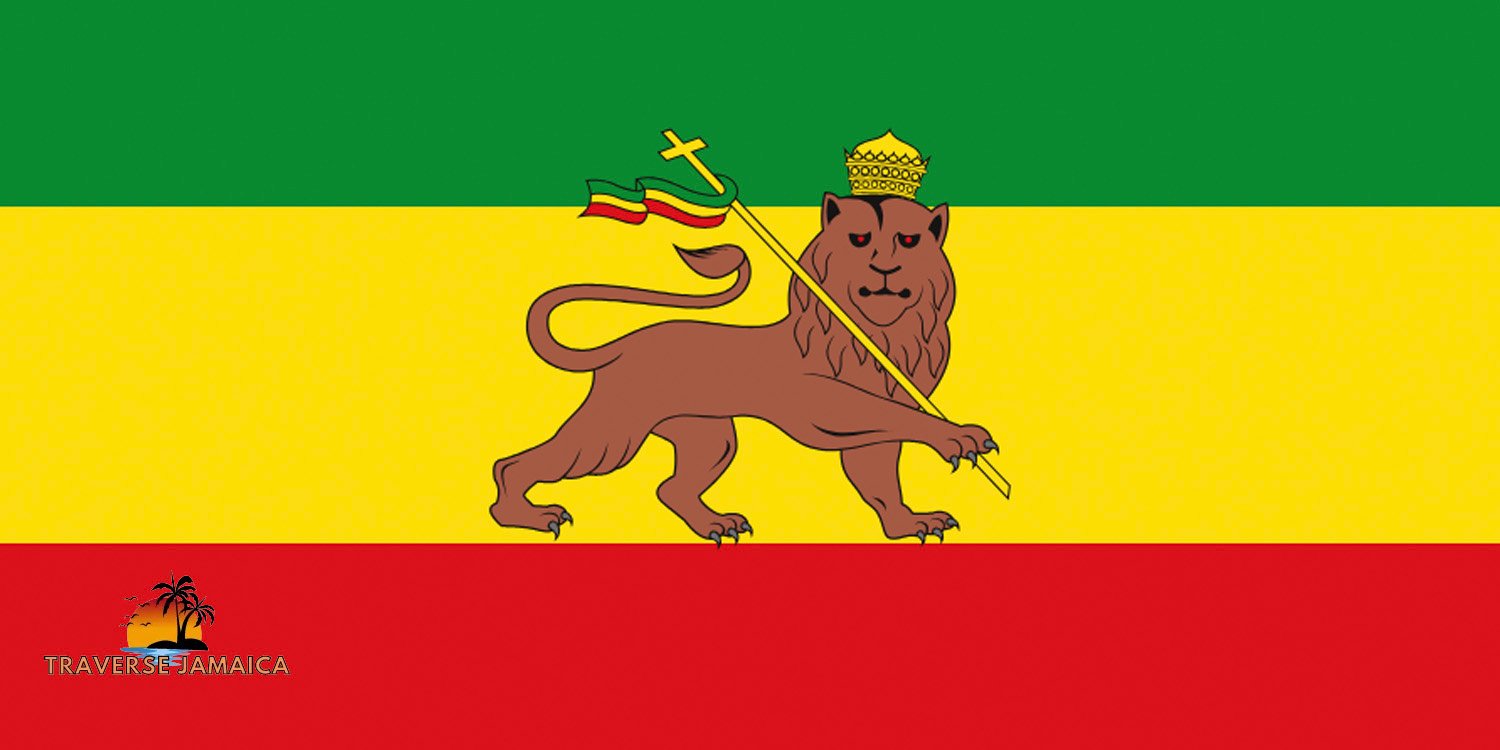Rastafarianism, often simply referred to as “Rasta,” is more than just a religious or spiritual belief system. It is a cultural movement that has significantly shaped the identity, social norms, and global perception of Jamaica. Emerging in the early 20th century, Rastafarianism has played a pivotal role in the country’s music, language, social issues, and even its political landscape. This article delves into the profound influence of Rastafarianism on Jamaican culture, exploring its origins, key beliefs, and its enduring legacy.
Origins and Key Beliefs of Rastafarianism
Rastafarianism originated in Jamaica in the 1930s, largely as a response to the social and economic inequalities faced by the descendants of African slaves. The movement was heavily influenced by Marcus Garvey, a Jamaican political leader, and activist who promoted the idea of black empowerment and the return to Africa, which he termed the “Back to Africa” movement. Garvey’s prophecy of a black king rising in Africa was fulfilled for Rastafarians with the coronation of Haile Selassie I in Ethiopia in 1930. Selassie, originally named Ras Tafari Makonnen, was hailed as the Messiah, and Rastafarianism took its name from him.
The core beliefs of Rastafarianism include:
- Reverence for Haile Selassie I: Seen as the living God and the returned Messiah who will lead the people of African descent to freedom.
- The Return to Africa (Zion): Africa is considered the promised land, particularly Ethiopia, where Rastafarians believe they will eventually return.
- Natural Living: Emphasis on a natural lifestyle, including vegetarianism or an ital diet, dreadlocks, and the use of natural herbs, most famously cannabis (referred to as “ganja”) for spiritual and medicinal purposes.
- Rejection of Western Society (Babylon): Critique and rejection of Western materialism and oppression, which Rastafarians refer to as “Babylon.”
Music: The Soundtrack of a Movement
Perhaps the most significant and globally recognized contribution of Rastafarianism to Jamaican culture is reggae music. Reggae emerged in the late 1960s and quickly became the voice of the Rastafarian movement, spreading its messages of peace, unity, and resistance against oppression.
Bob Marley: The Global Ambassador
Bob Marley, a devout Rastafarian, is arguably the most influential reggae artist of all time. His music not only popularized reggae but also introduced Rastafarian beliefs to a global audience. Songs like “One Love,” “Redemption Song,” and “Buffalo Soldier” conveyed messages of love, freedom, and social justice, deeply rooted in Rastafarian ideology. Marley’s influence extended beyond music; his image, with his dreadlocks and militant stance against oppression, became synonymous with Rastafarianism and Jamaican culture.
Other Influential Reggae Artists
While Marley is the most iconic figure, other artists like Peter Tosh, Burning Spear, and Bunny Wailer also played crucial roles in spreading Rastafarian messages through their music. These artists used their platforms to address social injustices, promote African heritage, and call for spiritual and political liberation.
Language: Patois and Rasta Vocabulary
The influence of Rastafarianism on the Jamaican language is profound. Jamaican Patois, a Creole language spoken widely across the island, has incorporated many Rastafarian terms and phrases. This language, vibrant and expressive, is a fusion of English, African languages, and other influences, reflecting Jamaica’s diverse heritage.
Key Rasta Terms
- I and I: A phrase emphasizing the unity between God and humans, as well as among all people. It replaces “you and me” to reflect collective identity.
- Jah: A shortened form of Jehovah, referring to God.
- Babylon: Represents oppressive systems, particularly Western societies and governments.
- Zion: Symbolizes Africa, especially Ethiopia, as the spiritual homeland.
- Irie: Signifies a state of contentment and positivity.
These terms have transcended religious use and become part of everyday language in Jamaica, illustrating the deep integration of Rastafarian philosophy into the national consciousness.
Social and Political Influence
Rastafarianism’s impact extends into Jamaica’s social and political spheres. The movement has historically advocated for social justice, human rights, and the upliftment of marginalized communities.
Social Activism
Rastafarians have been at the forefront of social activism in Jamaica, challenging systemic inequalities and advocating for the rights of the poor and disenfranchised. Their emphasis on community solidarity and mutual support has inspired various social initiatives aimed at improving the lives of the underprivileged.
Political Engagement
The influence of Rastafarianism is also evident in Jamaica’s political landscape. Rastafarians have actively participated in political movements and campaigns, often aligning with parties and leaders who champion social justice and equality. The People’s National Party (PNP), for instance, has historically received support from the Rastafarian community due to its progressive policies and focus on social reform.
Cultural Expressions: Art, Fashion, and Festivals
Beyond music and language, Rastafarianism has influenced various aspects of Jamaican culture, including art, fashion, and festivals.
Art and Symbolism
Rastafarian symbols and themes are prevalent in Jamaican art. The colors red, gold, and green, representing the Ethiopian flag, are frequently used in paintings, murals, and crafts. These colors symbolize blood, wealth, and the lush land of Ethiopia, respectively. Additionally, images of Haile Selassie, the Lion of Judah, and African motifs are common, reflecting the spiritual and cultural connections to Africa.
Fashion
Rastafarian fashion is distinct and has become a significant part of Jamaican identity. Dreadlocks are perhaps the most recognizable aspect, symbolizing a natural and spiritual way of life. Rastafarian attire often includes garments in red, gold, and green, along with knitted caps and head wraps. This style has transcended religious boundaries and become popular in mainstream Jamaican fashion, symbolizing resistance and cultural pride.
Festivals and Celebrations
Rastafarianism has also influenced Jamaican festivals and celebrations. Events such as Reggae Sumfest and the Jamaica Carnival often feature elements of Rastafarian culture, from music performances to food and art. The annual celebration of Haile Selassie’s birthday on July 23rd is an important event for Rastafarians, marked by gatherings, music, and rituals.
Global Impact and Legacy
The influence of Rastafarianism extends far beyond the shores of Jamaica. The movement has had a significant impact on global culture, particularly in the areas of music, spirituality, and social activism.
Spread of Reggae and Rastafarianism
Reggae music, with its Rastafarian roots, has become a global phenomenon. Artists from various countries have adopted and adapted reggae, infusing it with their own cultural elements while preserving its core messages of peace, love, and resistance. This global spread has also introduced Rastafarian beliefs and practices to diverse audiences, fostering a greater understanding and appreciation of Jamaican culture.
Influence on Social Movements
The principles of Rastafarianism, particularly its emphasis on social justice and human rights, have resonated with various social movements worldwide. From the civil rights movement in the United States to anti-apartheid struggles in South Africa, the messages of Rastafarianism have inspired activists to fight against oppression and advocate for equality.
Cultural Tourism
Jamaica’s rich Rastafarian heritage has also become a significant draw for cultural tourism. Visitors flock to the island to experience its music, art, and festivals, seeking to connect with the spiritual and cultural essence of Rastafarianism. This influx of tourists has contributed to Jamaica’s economy and promoted a positive image of the country as a center of vibrant culture and history.
Conclusion
Rastafarianism has left an indelible mark on Jamaican culture, shaping its music, language, social norms, and global identity. From the prophetic teachings of Marcus Garvey to the iconic music of Bob Marley, the movement has influenced generations of Jamaicans and inspired people around the world. Its legacy is evident in the country’s art, fashion, and social activism, reflecting a deep-seated commitment to spiritual and cultural liberation. As Jamaica continues to evolve, the enduring influence of Rastafarianism serves as a testament to the power of cultural movements in shaping national identity and fostering global connections.









